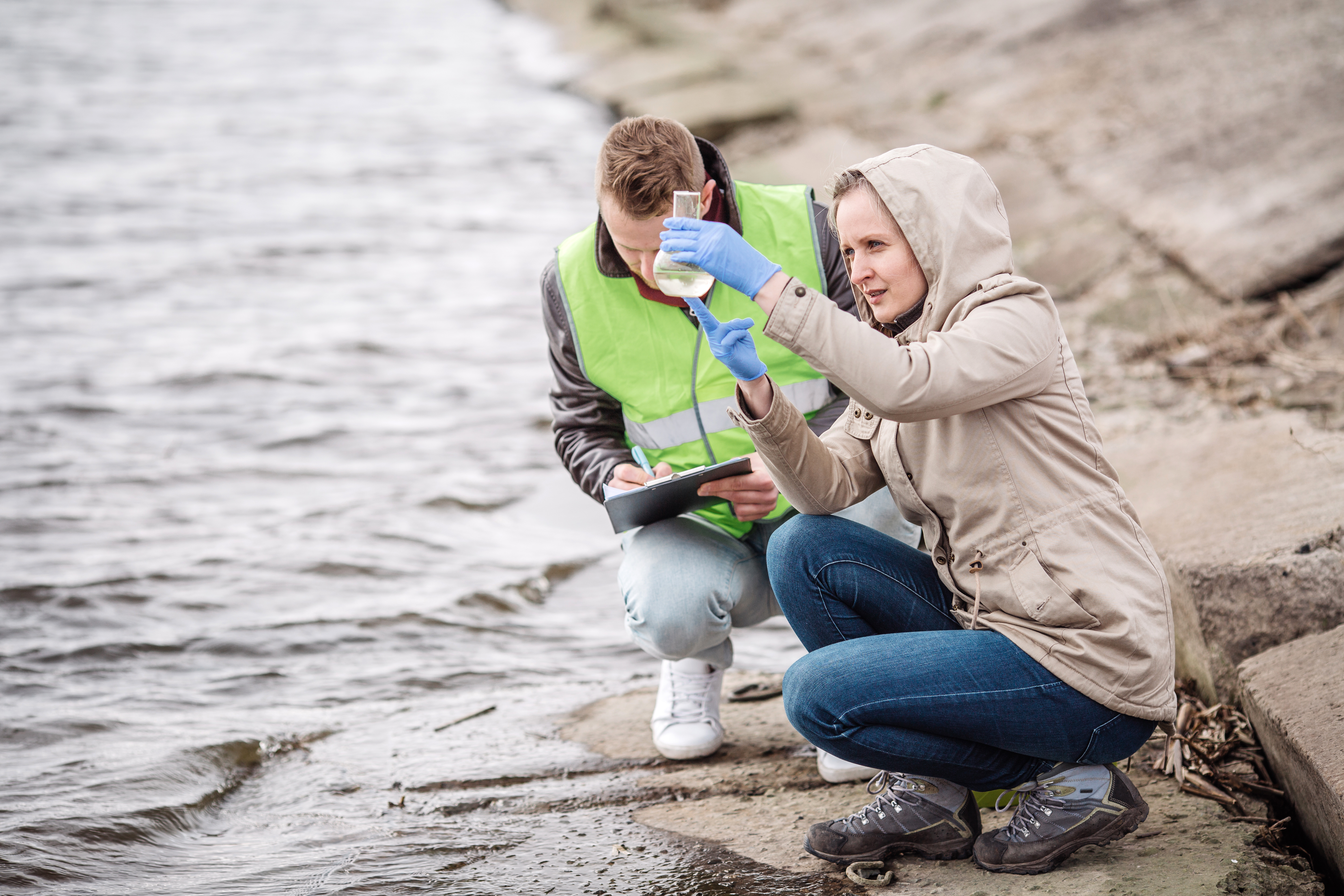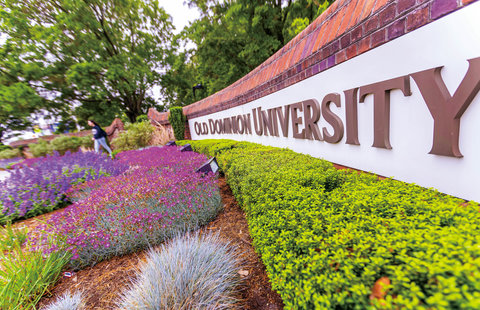The environmental science concentration in the Ocean & Earth Sciences B.S. degree is designed for students broadly interested in earth and ocean sciences. Students gain a solid background in basic sciences (e.g., chemistry, physics, math, and biology) while also taking courses in geology, oceanography, and atmospheric sciences. The concentration allows students the freedom to focus their upper-level coursework in a disciplinary field in ocean and earth sciences they find most compelling. Student in this concentration will be prepared for a wide range of future scientific pursuits (including graduate studies in appropriate fields), as well as work (or graduate studies) that applies their skills to policy development and interpretation. Specific employment opportunities include work in local, state, and federal government agencies, environmental consulting firms, and non-governmental organizations (NGOs).
Program Highlights
-
Students gain a solid background in basic sciences (e.g., chemistry, physics, math, and biology) while also taking courses in geology, oceanography, and atmospheric sciences.
-
The program provides student with the necessary training for employment with a B.S. in a wide range of federal, state, local and private venues.
-
The program provides students with the necessary background for graduate work in oceanography, marine sciences, environmental sciences as well as environmental policy.
-
Small class sizes at the upper division level means student work closely with faculty in their discipline as a part of their undergraduate experience.
Careers
Check out these ideas from ODU's Center for Career & Leadership Development and the Occupational Information Network (O*NET). A median salary is a midpoint of what people typically earn—half of those surveyed earned above the median salary, and half earned below.
Environmental Engineers
Research, design, plan, or perform engineering duties in the prevention, control, and remediation of environmental hazards using various engineering disciplines. Work may include waste treatment, site remediation, or pollution control technology.
Environmental Science Teachers, Postsecondary
Teach courses in environmental science. Includes both teachers primarily engaged in teaching and those who do a combination of teaching and research.
Environmental Scientists and Specialists, Including Health
Conduct research or perform investigation for the purpose of identifying, abating, or eliminating sources of pollutants or hazards that affect either the environment or the health of the population. Using knowledge of various scientific disciplines, may collect, synthesize, study, report, and recommend action based on data derived from measurements or observations of air, food, soil, water, and other sources.
Environmental Science and Protection Technicians, Including Health
Perform laboratory and field tests to monitor the environment and investigate sources of pollution, including those that affect health, under the direction of an environmental scientist, engineer, or other specialist. May collect samples of gases, soil, water, and other materials for testing.
Requirements
Transfer
At ODU, we understand that as a transfer student you have unique needs that require a wide array of campus resources. The Center for Advising Administration and Academic Partnerships aims to create a transfer inclusive culture that supports the successful...
Featured Courses
General survey of physical, geological, chemical and biological oceanography. The application of skills from mathematics, geology, physics, biology and chemistry for the solution of oceanographic problems. Prerequisites: MATH 211 or MATH 205, BIOL 121N or BIOL 136N and BIOL 122N or BIOL 137N, CHEM 121N-CHEM 122N, OEAS 111N, and PHYS 111N or PHYS 231N.
Core course for ocean and earth sciences majors that examines the processes linking the Earth's atmosphere, lithosphere, and hydrosphere into an interactive system. Prerequisites: BIOL 121N or BIOL 136N, BIOL 122N or BIOL 137N, CHEM 121N, CHEM 122N, and OEAS 111N, all with a grade of C or better.
This course will present basic ecological principles relevant to water pollution and ecotoxicology. Topics will include runoff, eutrophication, water and sewage treatment, industrial waste, oil pollution, pesticides, and plastics in the sea. Case studies provide focal points for consideration of issues in making decisions and setting policy. This is a writing intensive course. Prerequisites: grade of C or better in ENGL 211C, ENGL 221C, or ENGL 231C. Pre- or corequisites: a grade of C or better in OEAS 306.
Cost
Estimated rates for the 2024-25 academic year. Rates are subject to change. Other fees are assessed for special services and certain academic programs. Anyone that is not a current Virginia resident will be charged non-resident rates. That includes international students.
Ways to Save
Here are a few ways for you to save on the cost of attending ODU. For more information visit University Student Financial Aid.
Contact

Additional Programs
Are there other programs at ODU I may be interested in?
With over 120 undergraduate programs, 130 graduate programs at the master's, education specialist and doctoral levels plus a wealth of certificate and professional development programs, Old Dominion University has the program for you. Visit our academic program listing page to see other programs ODU has to offer.






